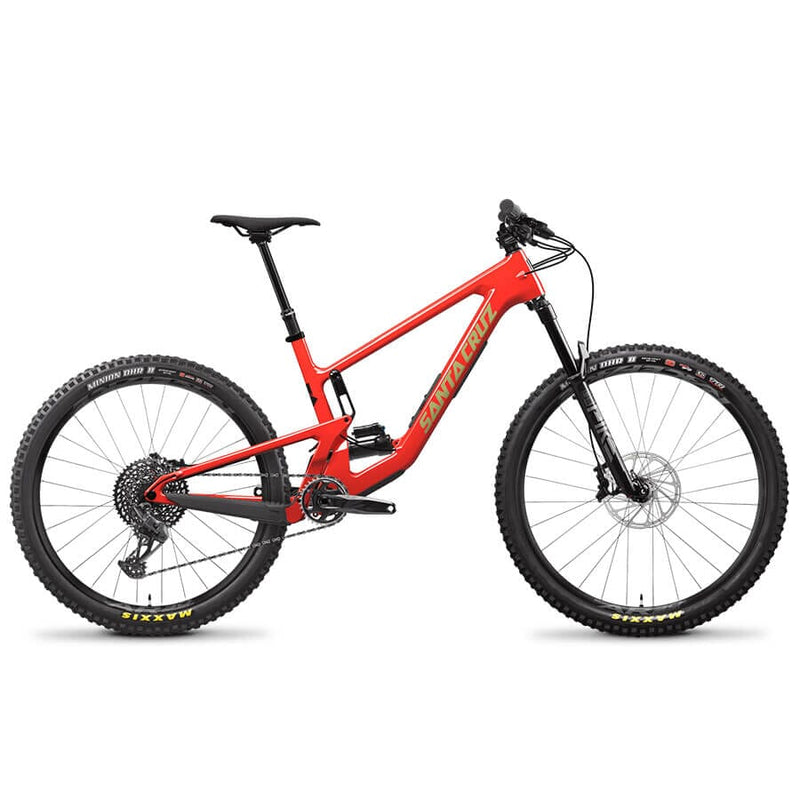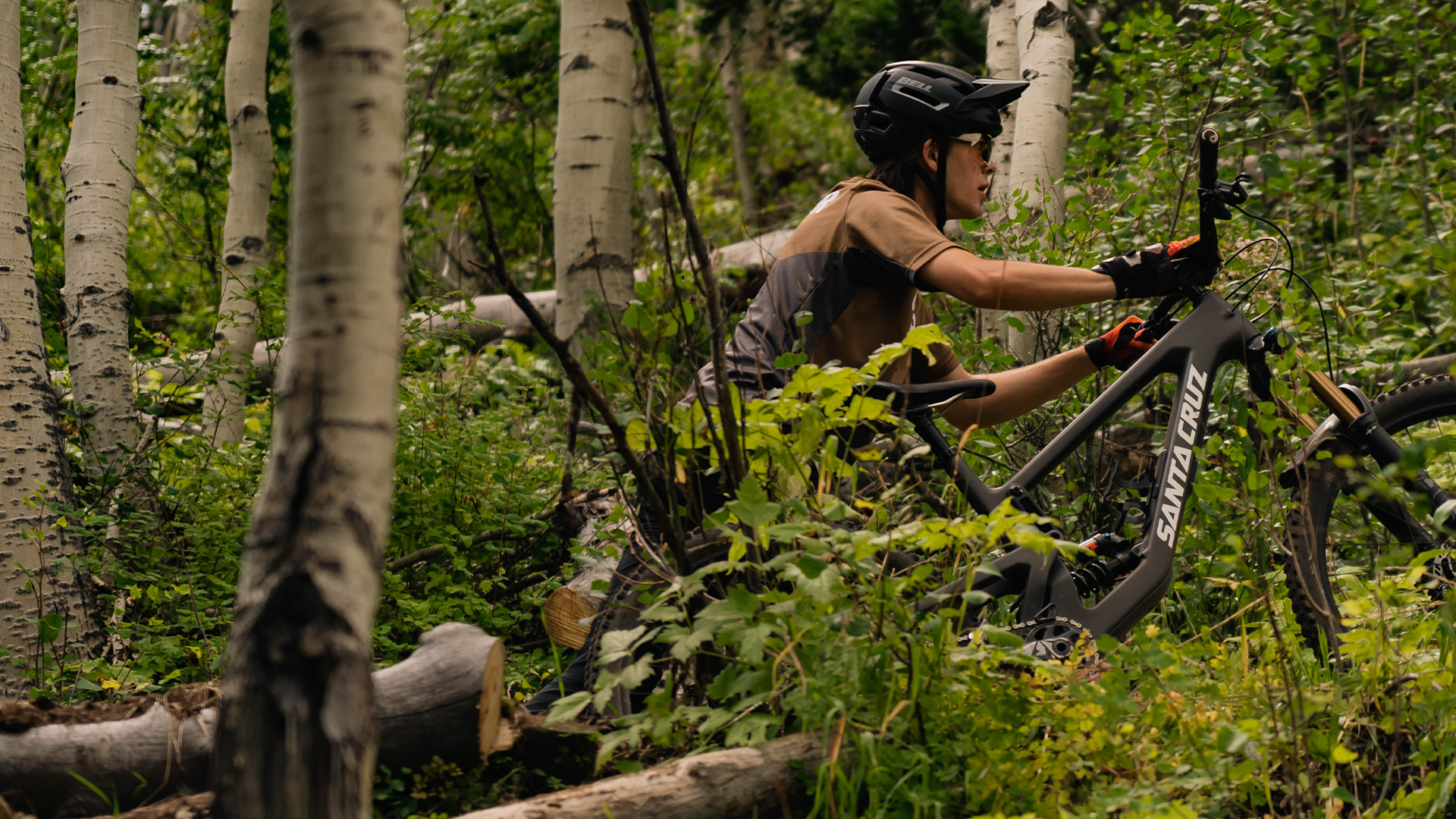Santa Cruz Bikes
Santa Cruz Bicycles has earned a cult following for good reason; rooted in the trails of Northern California, they’ve been pushing the limits of mountain bike design since 1994, with some of the most beloved bikes across the industry. Built for riders who live to rip, Santa Cruz bikes combine progressive geometry, premium carbon construction, and a commitment to flat-out speed and performance, leading the pack on everything from local laps to the professional ranks.
At Contender Bicycles, we’re pleased to carry the full Santa Cruz arsenal, from race-ready cross-country bikes like the Blur, to versatile, do-it-all trail machines like the Tallboy and Hightower, to big-hit enduro bruisers like the Nomad and Megatower. The 5010 and Bronson remain crowd favorites for riders who love to pop and play on every feature, while the Stigmata delivers gravel speed with classic Santa Cruz flair. The new Skitch e-bike proves Santa Cruz can bring the same stoke to the streets, offering pedal-assist power in a lightweight package, perfect for a sweat-free commute or an energizing rip around the neighborhood.
Whether you’re chasing podiums, hunting KOMs, or just out to shred single-track with friends, Santa Cruz builds bikes that are tough and tech-forward, ridiculously fun, and sure to deliver.









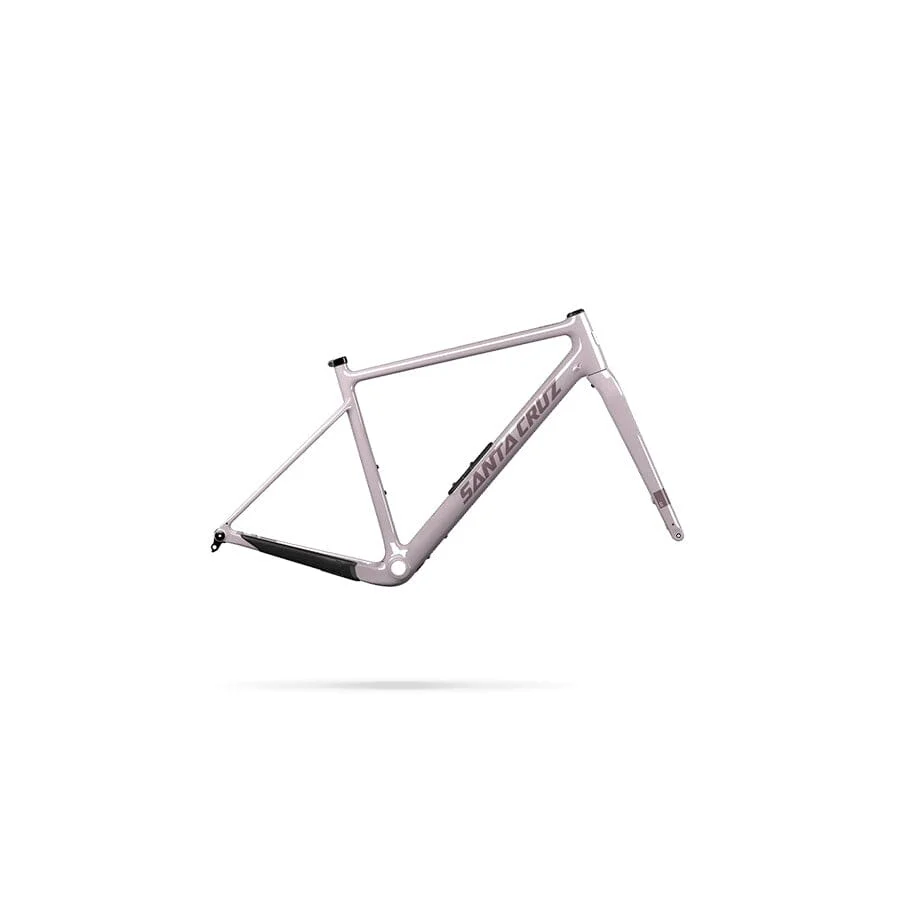
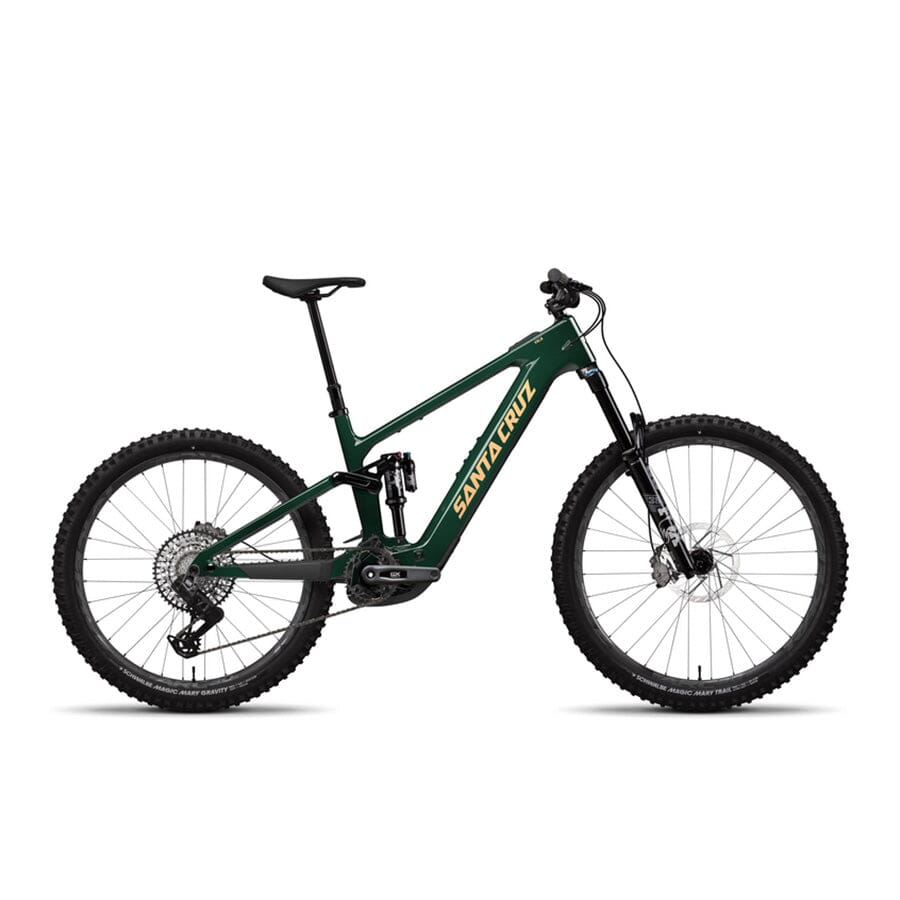
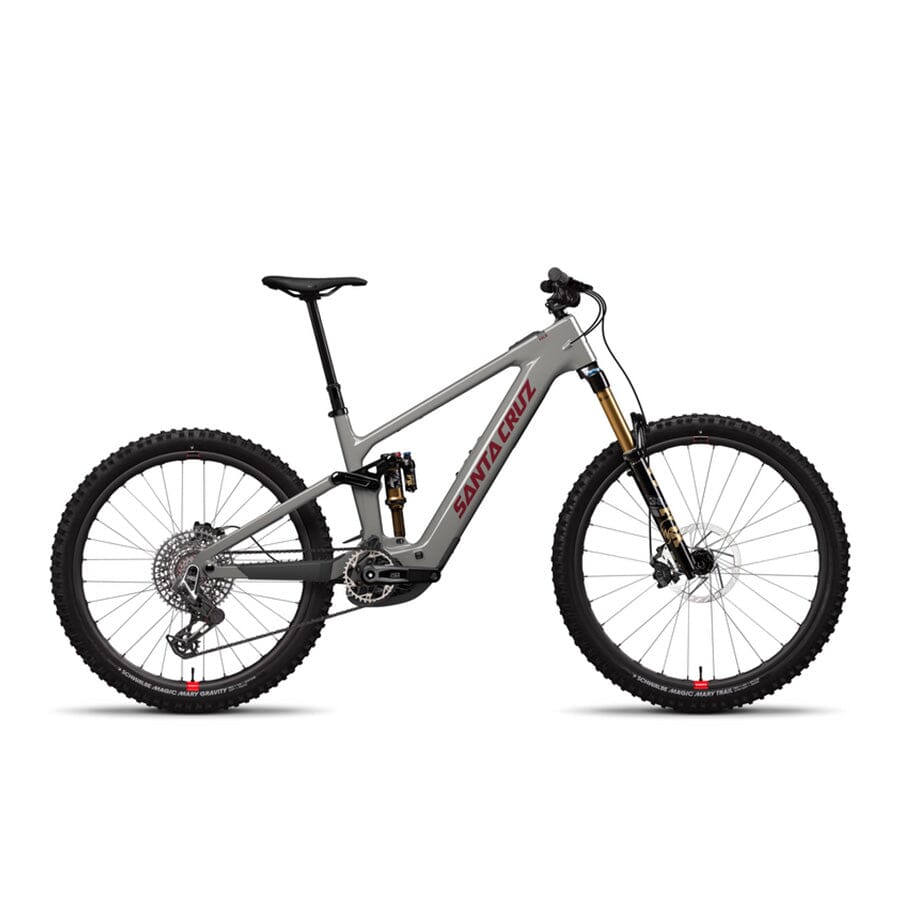

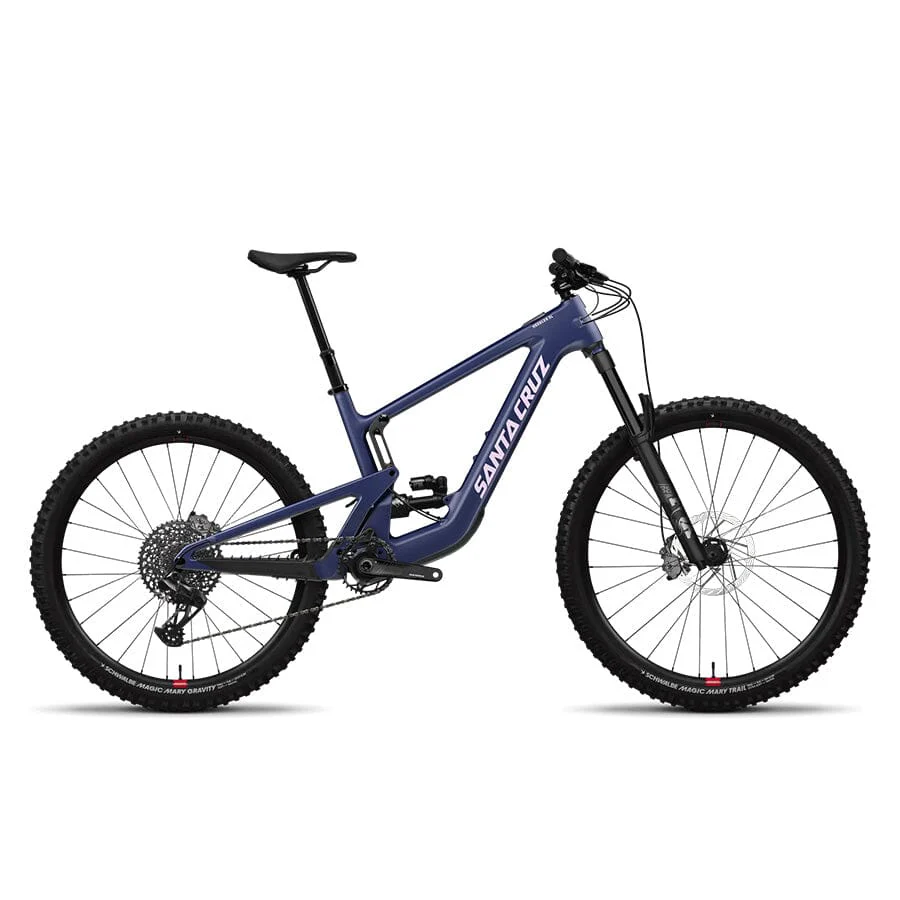
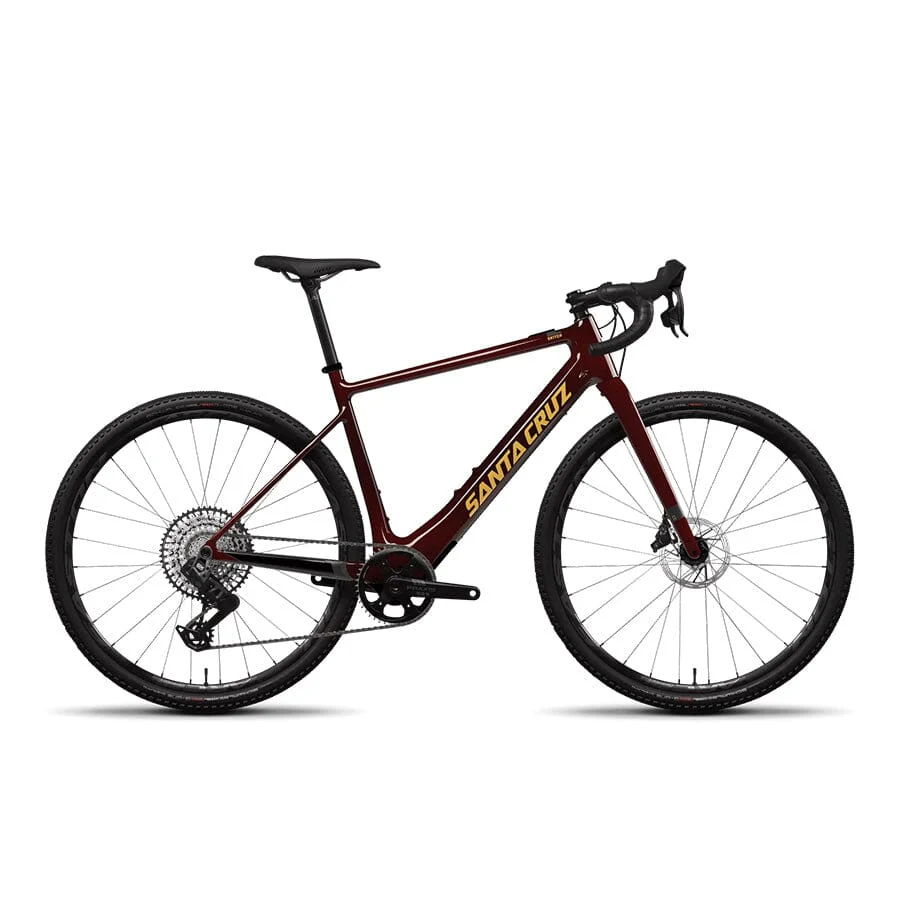
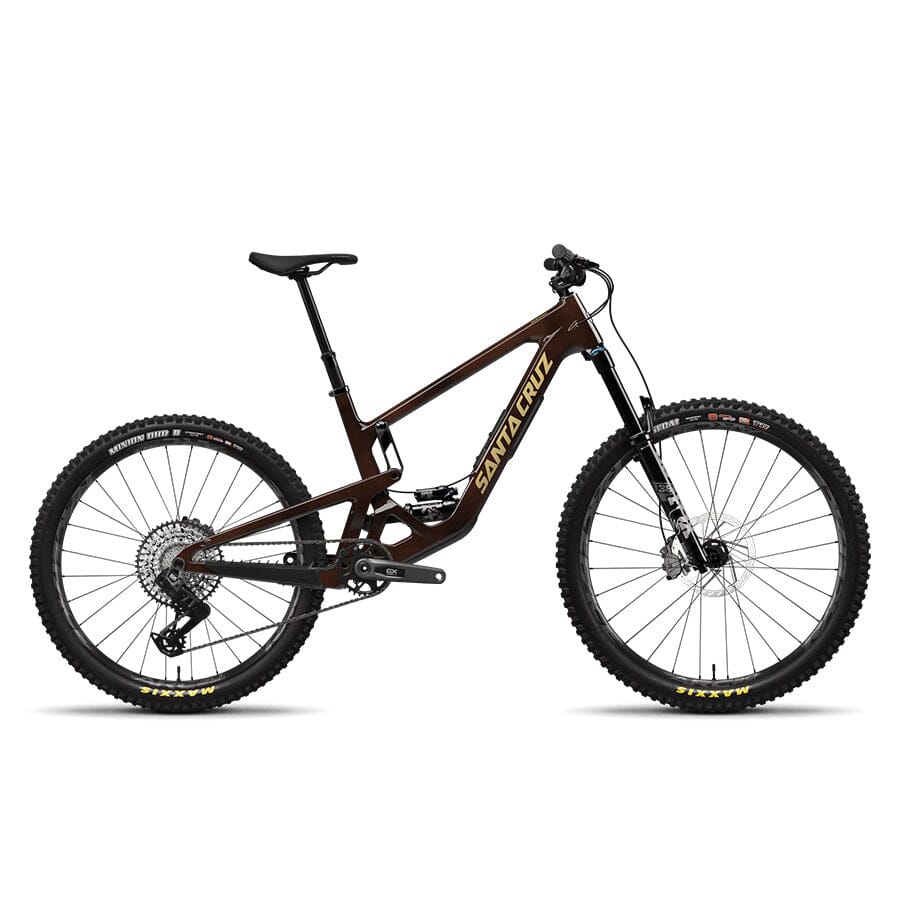
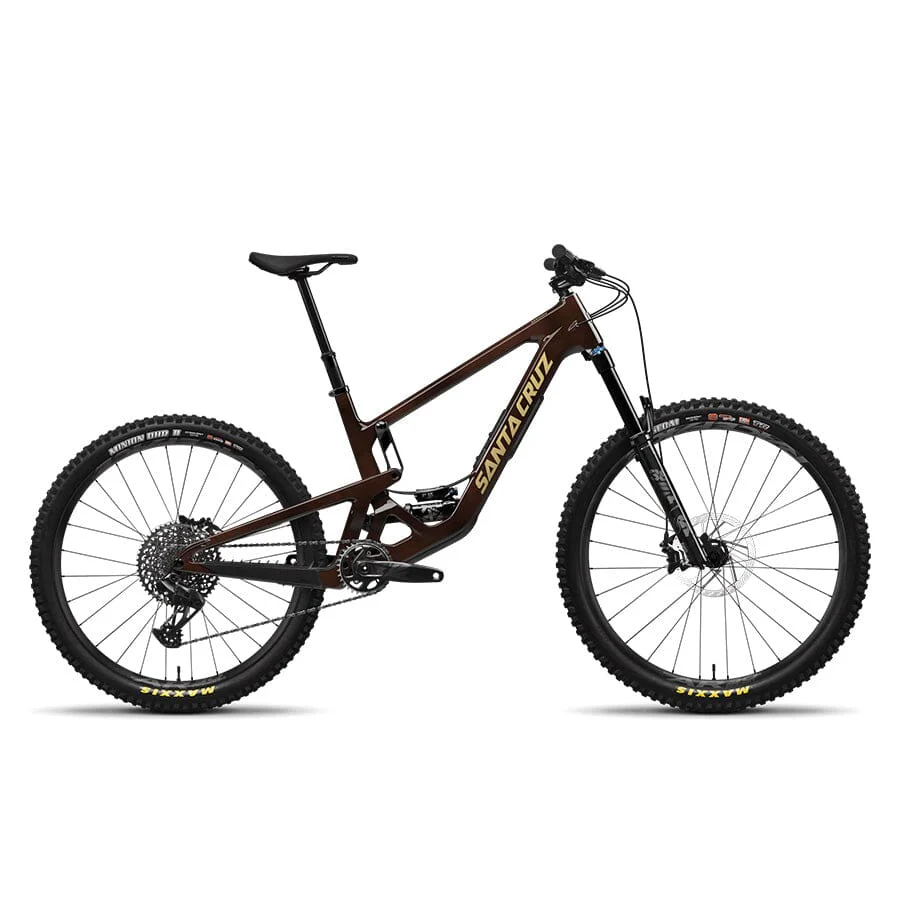
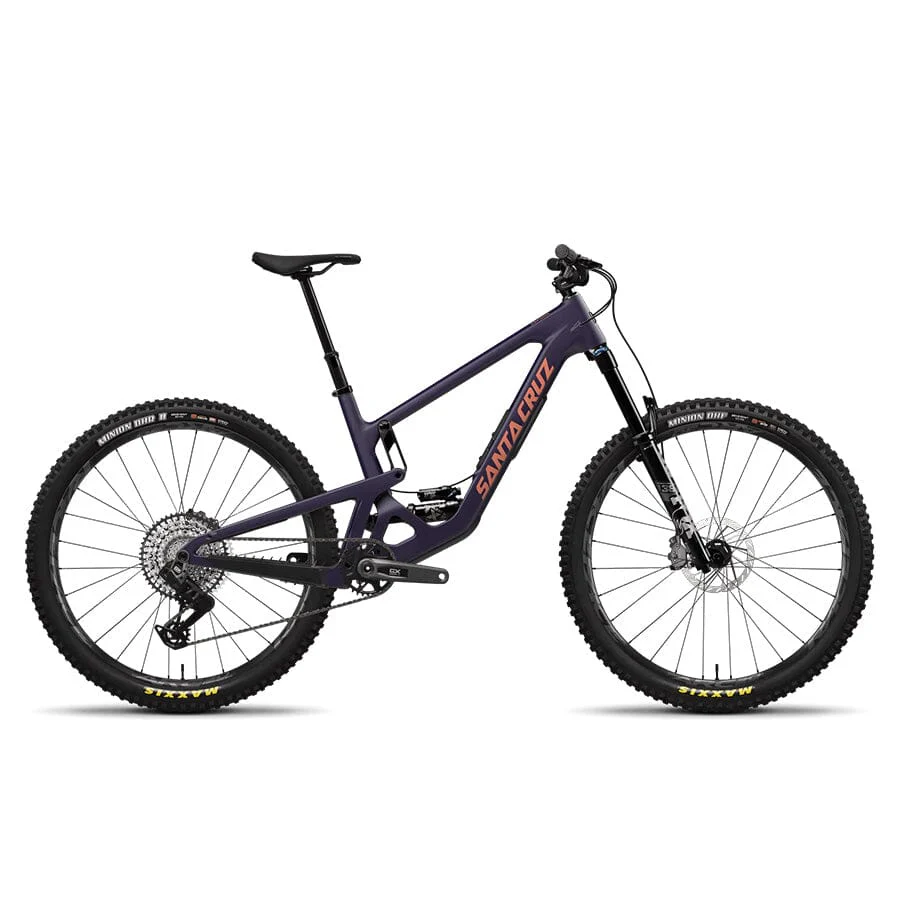
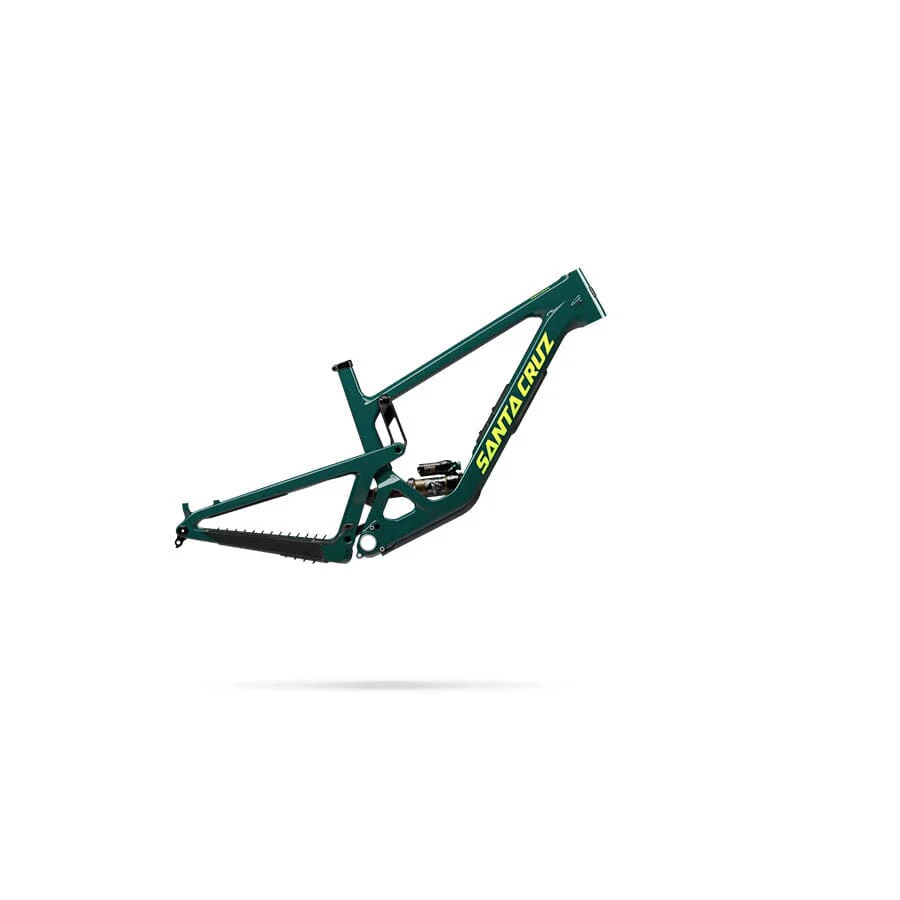
Find your flow and elevate your ride to new heights
From cross-country race rockets to gravity-focused big hitters, and from gravel rigs to pedal-assist trail bikes, Santa Cruz’s lineup has it all. Known for category-defining geometry and suspension, in-house carbon engineering, and a no-compromises approach to performance, Santa Cruz builds bikes with distinct personalities, but a shared DNA of durability, ride quality, and fun-first design. Whether you’re chasing race results, flowing down your favorite trail, or rolling through the city with some stealthy boost, there’s a Santa Cruz built to elevate every ride. Specifically, Santa Cruz’s full lineup of mountain, gravel, and city bikes includes the following:
- Santa Cruz Cross-Country (XC) Bikes: designed for pure speed and maximum efficiency, Santa Cruz cross-country bikes are lightweight, fast, and ready to race. The Highball is a hardtail classic—simple, responsive, and razor-sharp. The Blur is the brand’s flagship full-suspension XC machine, with the Blur TR offering a slightly longer-travel build for more aggressive courses and bigger backcountry missions. These bikes are made to climb faster, descend smoother, and deliver podium-worthy performance.
- Santa Cruz Trail Bikes: the sweet spot between all-day pedaling and trail-slaying fun, Santa Cruz trail bikes are known for their playful handling and do-it-all capability, making them ideal for a single bike quiver. The Tallboy is a mid-travel 29er with big-bike confidence, while the Hightower brings more muscle for rowdy terrain. The Bronson mixes abundant travel with mixed-wheel versatility (MX), while the 5010 is a 27.5" trail whip that turns every feature into a playground, and every ride into an epic.
- Santa Cruz Enduro & Downhill Bikes: when the descents get gnarlier and the stakes get higher, Santa Cruz’s enduro and downhill bikes step up. The Nomad is built around mixed wheels and big travel—ideal for bike park laps and hard-charging alpine descents. The Megatower is a 29" enduro weapon with progressive geometry and Super Deluxe suspension, made for charging technical descents and full-send confidence. These are bikes for gravity lovers who still pedal to the top.
- Santa Cruz Electric Mountain Bikes (e-MTB): blending Santa Cruz’s trail pedigree with the power to go further and climb faster, these e-MTBs keep the stoke high and the shuttle runs low, with a chairlift built right into the bike. The Vala is a trail-capable, accessibly priced electric mountain bike for everyday adventurers, while the Bullit is a long-travel bruiser made to crush the steepest descents. Rounding things out, the Heckler SL delivers a lightweight, stealthy feel thanks to a compact drive unit and carbon frame. All the fun, just with a little extra juice.
- Santa Cruz Gravel Bikes: the Stigmata proves that Santa Cruz’s mountain roots can thrive offroad as well, from backcountry fire roads to serpentine singletrack. With clearance for big tires, a refined carbon layup, and a ride feel that’s equal parts fast and forgiving, the Stigmata is ready for high-speed gravel racing, multi-day adventures, or just escaping the pavement. It’s a gravel bike with a trail bike soul.
- Santa Cruz Urban Bikes: Santa Cruz’s vision for the modern urban commuter, the Skitch is lightweight, fast, and powered by the sleek Fazua drive system. Designed for riders who want to turn the daily grind into a daily thrill, the Skitch is as stylish as it is smart, with the power to flatten hills and outrun traffic, all while looking like a classic fixie from afar.

Wheel Size: MX | Front Travel: 140mm | Rear Travel: 130mm
Embrace the playful spirit of trail riding with the Santa Cruz 5010, a bike that invites you to hop, skip, and jump your way through adventurous trails. The 5010 has been upgraded to feature a dynamic 29-inch front wheel paired with a 27.5-inch rear wheel, optimizing traction and control across various terrains. This unique wheel combination enhances stability while maintaining agile handling, making it perfect for technical trails and playful maneuvers. The 5010’s suspension system has also seen significant refinement, with improved kinematics that offer a smoother, more responsive ride. This enhanced suspension ensures that every bump and trail feature is absorbed efficiently, providing a plush ride without sacrificing responsiveness or control. Available in several build kits, including the versatile GX AXS and the higher-end X0 AXS, the 5010 caters to different riding styles and budgets. Each build offers specific components and features tailored to enhance your trail experience, from reliable performance to advanced precision. Whether you’re navigating technical descents or enjoying flowing singletrack, the Santa Cruz 5010 is designed to elevate your trail adventures, making every ride a blend of fun and high performance. Discover a new level of excitement and control with a bike that combines innovative design with the thrill of trail riding.

Wheel Size: 29” | Front Travel: 170mm | Rear Travel: 165mm
Conquer challenging terrain, gap jumps, and rugged trails with absolute confidence aboard the Santa Cruz Megatower. This mountain bike is designed with large wheels, generous 160mm rear suspension travel, and meticulously tuned geometry, making it a powerhouse on demanding trails and technical features. The Megatower’s robust construction provides the stability and control needed for steep descents and aggressive riding. Available in several build kits, including the R-Kit for great value, the S-Kit for a balanced performance, and the high-end XO AXS for top-tier components and precision, the Megatower caters to various preferences and budgets. Each build is tailored to enhance your riding experience, offering options that suit different needs. With its advanced features and durable design, the Santa Cruz Megatower is ready to elevate your trail riding and help you push your limits on every ride. Prepare to leave your mark with the unrivaled performance of the Megatower.

Wheel Size: MX | Front Travel: 170mm | Rear Travel: 170mm
Unleash your riding potential and explore new horizons with the Santa Cruz Nomad, a bike designed to tackle the most challenging and rowdy terrain with ease. Equipped with a confidence-inspiring 170mm rear suspension, the Nomad is built to handle aggressive descents, rough trails, and technical features, giving you the ability to conquer lines you never thought possible. Its robust suspension system ensures a smooth, controlled ride, allowing you to push your limits and experience unparalleled excitement on the trails. The Nomad features Santa Cruz’s renowned refinement and cutting-edge design, combining durability with high performance. Available in various build kits, including the R Kit for a solid, budget-friendly option and the GX AXS for high-end components and advanced functionality, the Nomad caters to different riding preferences and needs. Whether you’re seeking adrenaline-fueled adventures or simply aiming to enhance your trail experience, the Santa Cruz Nomad is the ultimate partner for exploring new challenges and pushing your boundaries. Prepare to embrace thrilling rides and tackle any terrain with the Nomad as your go-to trail companion.

Wheel size: 29" | Front travel: 120mm (TR), 110mm (XC) | Rear travel: 115mm (TR), 107mm (XC)
Experience unparalleled speed and agility on the trails with the Santa Cruz Blur, a cross country mountain bike engineered for top performance and nimble handling. Designed to excel in both competitive racing and fast-paced trail riding, the Blur comes in two versions: the 100mm model for optimal efficiency and responsiveness, and the 120mm TR (Trail) version for enhanced capability on rougher terrain. The Blur is available in several build kits to suit different needs and budgets. The R-Kit provides a budget-friendly option with solid performance, while the GX AXS offers a versatile mid-range setup. For those seeking the ultimate in performance, the high-end XO AXS kit delivers top-tier components and precision. Each build is tailored to deliver exceptional speed, control, and durability. Featuring an advanced carbon frame, the Santa Cruz Blur ensures a lightweight yet robust ride, making it perfect for riders who demand both agility and strength. Its sleek design not only enhances performance but also turns heads on the trails. Prepare to elevate your riding experience and stand out from the pack with the Santa Cruz Blur, a bike that combines cutting-edge technology with thrilling trail dominance.
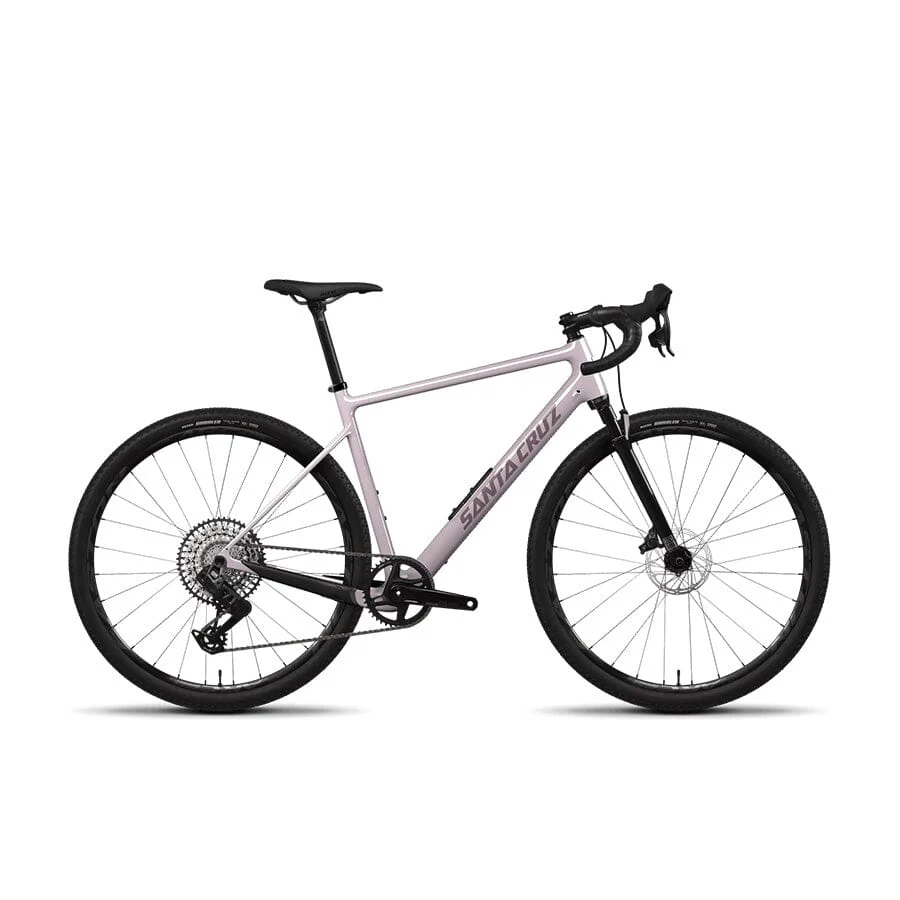
Wheelsize: 700c (up to 50mm wide)
The Santa Cruz Stigmata is a gravel bike that excels in versatility and ruggedness, making it ideal for adventurous riders. Its generous tire clearance allows it to handle a range of terrains, from smooth dirt roads to rough gravel trails, with ease. The reliable thru-axle design enhances stability and control, ensuring confidence in challenging conditions. The Stigmata is available in several build kits, including the Force 1x and 2x and Rival 1x and 2x options, allowing you to choose the setup that best suits your riding style and budget. Its sleek, modern design not only delivers top performance but also stands out with its eye-catching aesthetics. Whether you're tackling long, adventurous rides or exploring local gravel paths, the Santa Cruz Stigmata is ready to bring your gravel riding dreams to life. With its perfect combination of functionality and style, it transforms every ride into an exhilarating experience. Prepare to conquer new trails and push your limits with a bike designed for both performance and adventure.

Wheel Size: 29" | Front Travel: 160mm | Rear Travel: 150mm
Experience the versatility and all-around performance of the Santa Cruz Hightower, a bike designed to excel on both climbs and descents. Built to handle a wide range of trails and terrains, the Hightower's lower-link mounted shock and adjustable geometry provide a smooth, responsive ride that adapts to your riding style. The latest model features 150mm of rear travel and a beefed-up 160mm front suspension, giving you the extra capability to tackle even more aggressive terrain with ease. Whether you're carving up flowy singletrack or navigating technical descents, this mountain bike delivers precision and control. Available in a variety of build kits, including the dependable R-Kit and the premium XO AXS Reserve, the Hightower offers a setup for every type of rider. Its 29-inch wheels ensure excellent rollover ability, helping you maintain speed and smoothness over rough ground. Whether you're embarking on epic backcountry adventures or shredding your local trails, the Santa Cruz Hightower is ready to take on any challenge. With this bike, every ride becomes an unforgettable experience.

Wheel Size: MX | Front Travel: 160mm | Rear Travel: 150mm | Drive Unit: FAZUA RIDE 60 | Battery Size: 430 Wh
The Santa Cruz Heckler SL merges the nimble handling of a trail bike with the boost of the Fazua Ride 60 motor, offering an ideal blend of power and agility. Its 150mm of VPP suspension, mixed-wheel configuration, and modern, progressive geometry are designed for riders who seek both performance and versatility. Equipped with a 430 Wh battery, the Heckler SL offers impressive range, easily managed through three power modes available via the Fazua app. This setup allows riders to adjust power output on the go, tailoring their ride experience to the trail ahead. The compact Fazua motor and efficient battery work together to deliver smooth, reliable support on steep climbs, without adding excessive weight or bulk. With its balanced frame and thoughtful design, the Heckler SL is built to tackle technical trails and tight corners with confidence. It’s an eMTB crafted to amplify the thrill of every ride, whether you’re climbing, descending, or simply exploring new terrain.

Wheel Size: 29” | Front Travel: 130mm | Rear Travel: 120mm
Embrace the next level of short-travel mountain biking with the new 120mm Santa Cruz Tallboy. This bike redefines what a short-travel bike can achieve, thanks to its innovative lower-link VPP suspension system that delivers exceptional performance and control. The 120mm travel ensures a balanced ride, handling technical trails with ease while maintaining a lively, responsive feel. Featuring Santa Cruz's renowned refinement and progressive geometry, the Tallboy combines sleek design with cutting-edge technology, making it a standout in the industry. The bike is available in several build kits, including the R Kit for a solid and budget-friendly option, and the GX AXS for a high-performance setup with advanced components. Each build offers a tailored experience, from reliable functionality to top-tier precision. Whether you're tackling challenging trails or enjoying a fast-paced ride, the Tallboy's advanced suspension and modern design promise to elevate your riding experience. Prepare to push the boundaries of short-travel biking and embark on thrilling adventures with the genre-bending Santa Cruz Tallboy, a bike that blends innovation with the excitement of trail riding.

Wheel Size: MX | Front Travel: 160mm | Rear Travel: 150mm
Unleash your riding potential with the newly redesigned Santa Cruz Bronson, a mountain bike engineered to conquer any trail with confidence and precision. Featuring a revamped frame and slacker geometry, the updated Bronson enhances stability on steep descents while maintaining its versatile nature across a range of terrains. This makes it the ideal choice for adventurous riders who crave exploration. Whether you're tackling steep climbs, navigating rock gardens, or powering through technical descents, the Bronson’s agile handling and responsive suspension system ensure you're always in control. Available in a variety of build kits, from the efficient R-Kit to the top-tier XO AXS Reserve, the Bronson can be tailored to suit different performance needs. Riders can expect unmatched traction and support with its VPP suspension, offering 150mm of travel in the rear for smooth, confident rides. The bike’s 29-inch front wheel provides stability and control, while the 27.5-inch rear wheel enhances maneuverability, striking the perfect balance between speed and agility. The newly slackened geometry further boosts the bike’s capability on technical terrain, making it more capable than ever. Whether you're seeking a playful ride or demanding more precision on challenging trails, the Santa Cruz Bronson delivers on all fronts. Built to push boundaries, this bike ensures that every ride is as thrilling as the last, no matter where the trail leads.

Wheel size: MX | Front travel: 170mm | Rear travel: 170mm | Drive Unit: Bosch Performance Line CX | Battery Size: 600wh
When gravity calls, the Bullit answers. This is the no-limits e-MTB designed for riders who chase the most technical lines and rowdiest descents—but want the extra boost to get back to the top without a shuttle. With DH-derived geometry, 170mm of travel, and rugged components, the Bullit is as close as it gets to owning both a downhill bike and a chairlift.
Its MX wheel setup—29" front for traction and 27.5" rear for agility—keeps the handling sharp on unpredictable terrain. Proportional geometry across all sizes means the Bullit feels right, no matter your height. Every detail—from the carbon frame to the one-piece rear link—has been engineered for durability, precision, and ride quality.
The 600Wh integrated battery keeps weight low so you’re covered for long hauls or massive elevation days. The Bullit is ready whether you're smashing laps at your local trail network or heading into the backcountry for all-day adventure.
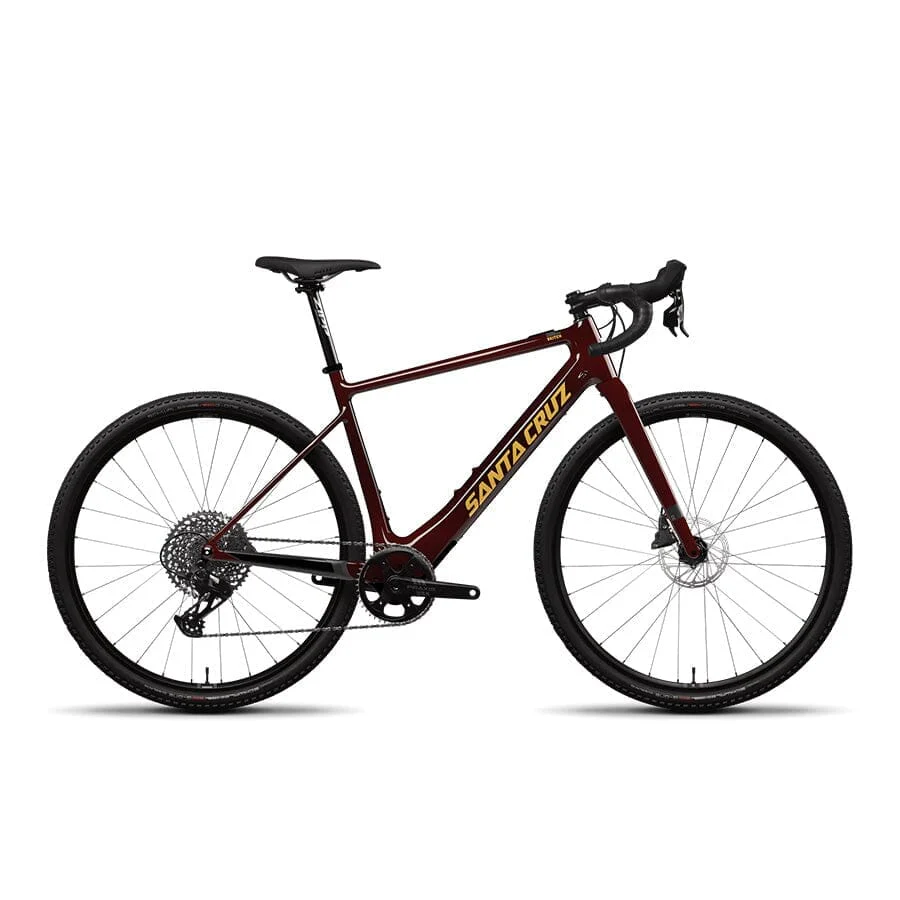
Wheel Size: 700c | Battery Size: 430 Wh | Drive Unit: Fazua Ride 60
The Santa Cruz Skitch is a versatile electric bike designed for urban commuting and off-road exploration. Equipped with a powerful 430W Fazua drive system, it provides smooth pedal assistance that makes riding through hilly streets or tackling rough terrain effortless. Its lightweight aluminum frame is built for speed and durability, offering a responsive yet comfortable ride. With hydraulic disc brakes, the Skitch ensures confident stopping power in all weather conditions, adding a layer of safety to your journeys. The bike features wide tires that improve grip and stability, whether you're navigating city streets or gravel paths. An integrated battery offers ample range for long rides, with a sleek design that doesn't compromise aesthetics. Additionally, the Skitch comes with built-in lighting and multiple mounting options for racks and accessories, enhancing its practicality for everyday use. Whether you're commuting to work or heading out for an adventure, the Santa Cruz Skitch blends power, comfort, and functionality to make every ride enjoyable.
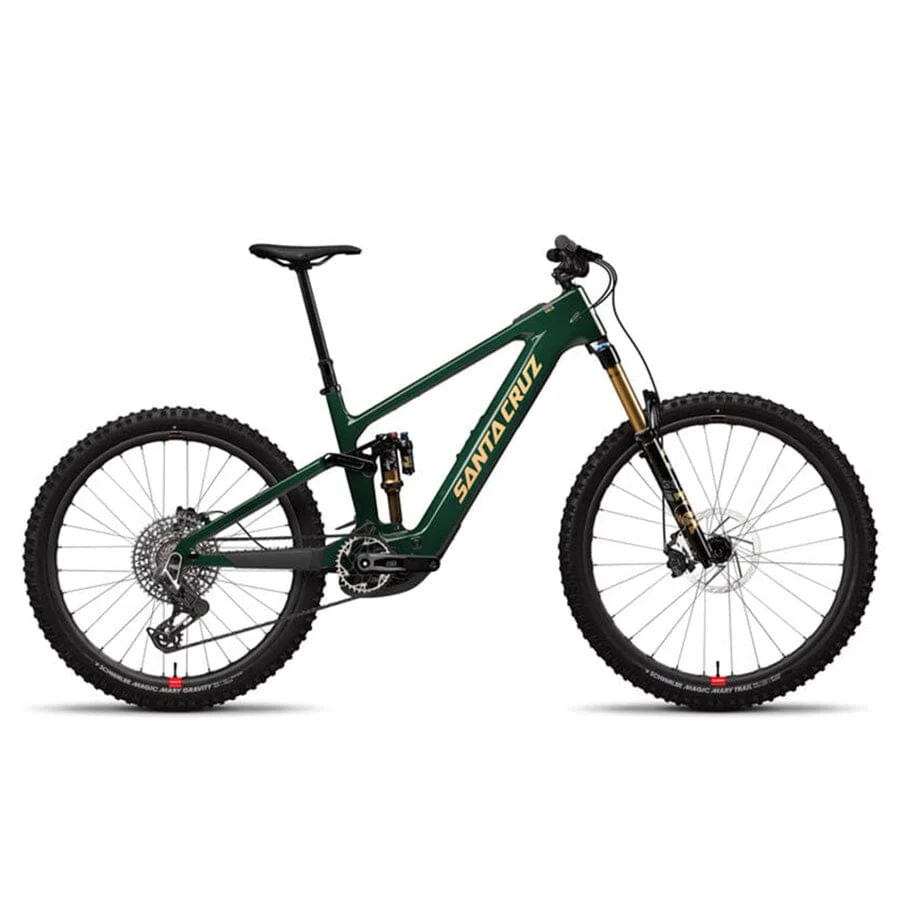
Wheel Size: MX | Front Travel: 160mm | Rear Travel: 150mm | Drive Unit: Bosch Performance Line CX | Battery Size: 600 Wh
The Santa Cruz Vala C GX AXS Kit is a full-power e-bike designed to deliver exceptional performance on the trail. With a Bosch Performance Line CX motor offering 85 Nm of torque and a 600Wh battery (with an optional 250Wh range extender), it provides powerful, reliable assistance on even the toughest climbs. The mixed-wheel setup (MX) combines a 29” front wheel and 27.5” rear for optimal handling and stability. The Vala features 150mm of rear travel and a 160mm travel fork, absorbing bumps and technical terrain with ease. Its innovative four-bar suspension design ensures excellent pedaling efficiency and control during descents. The lightweight C & CC Carbon frame keeps the bike agile and sub-50 pounds, while the flip-chip allows for personalized tuning of the bike’s suspension feel. Designed with practicality in mind, the Vala accommodates long dropper posts and larger bearings for durability. This is an e-bike that blends power, handling, and versatility for an unparalleled ride experience.
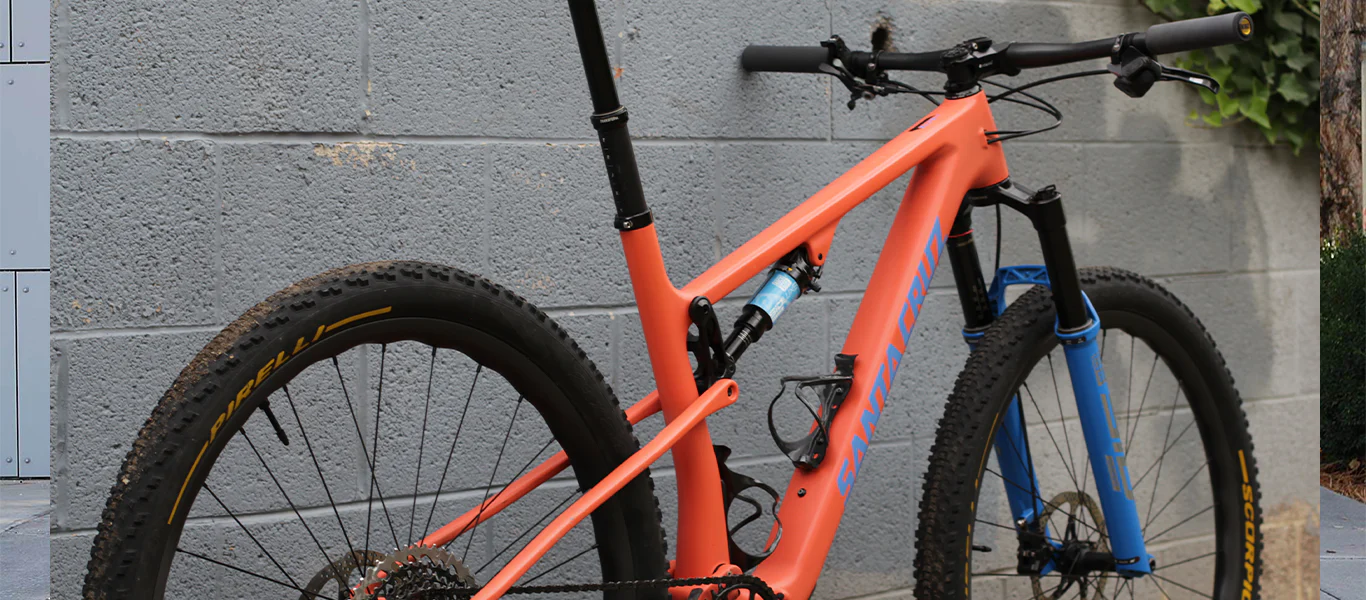
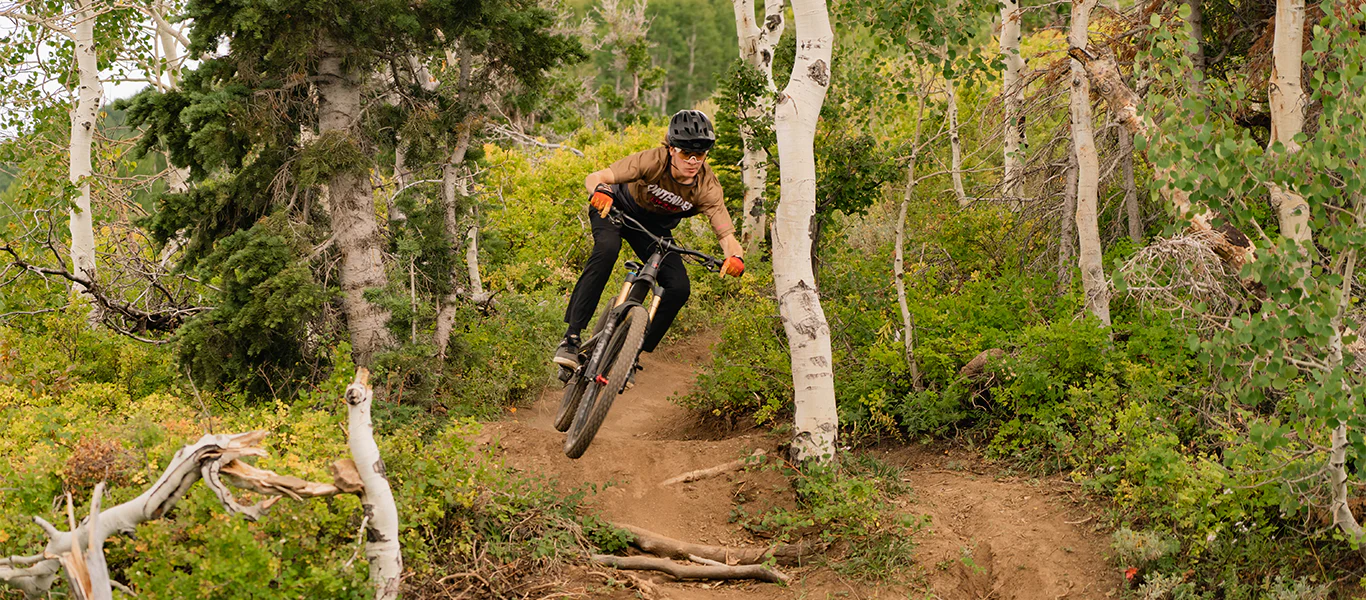
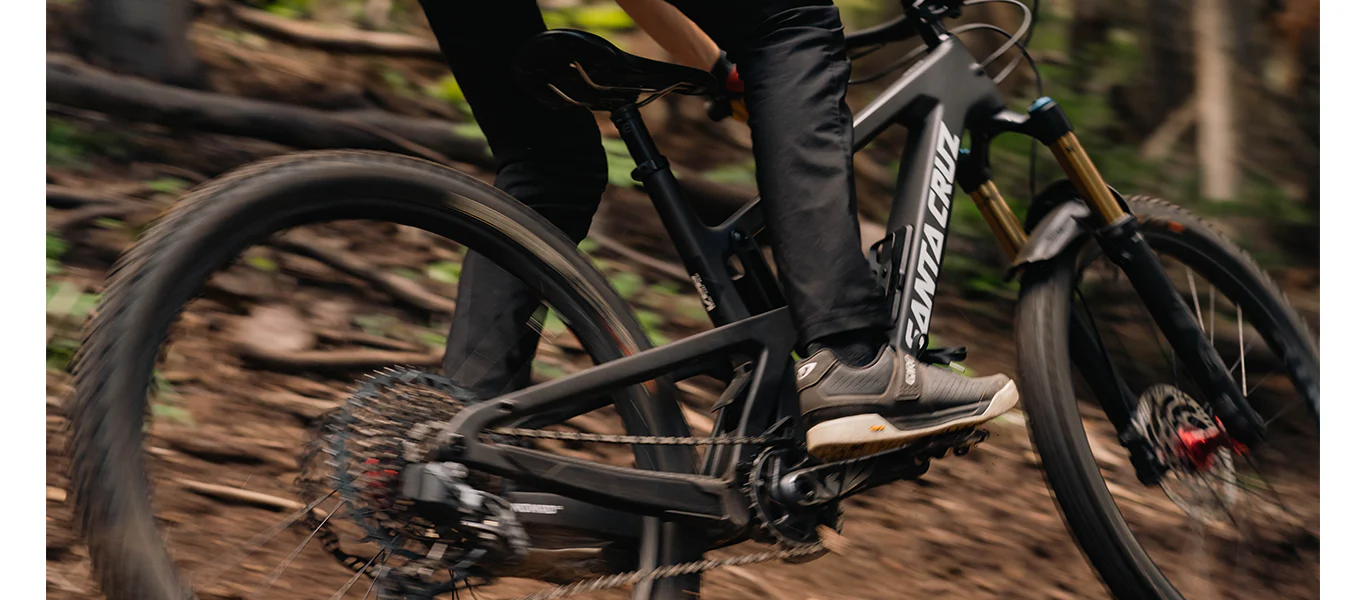

At Contender Bicycles, our best tools for selling bikes are the people who ride them. Everyone at Contender Bicycles has extensive experience riding bikes across many brands. If you have any questions regarding a Santa Cruz Bikes or want to discuss build options, email us











